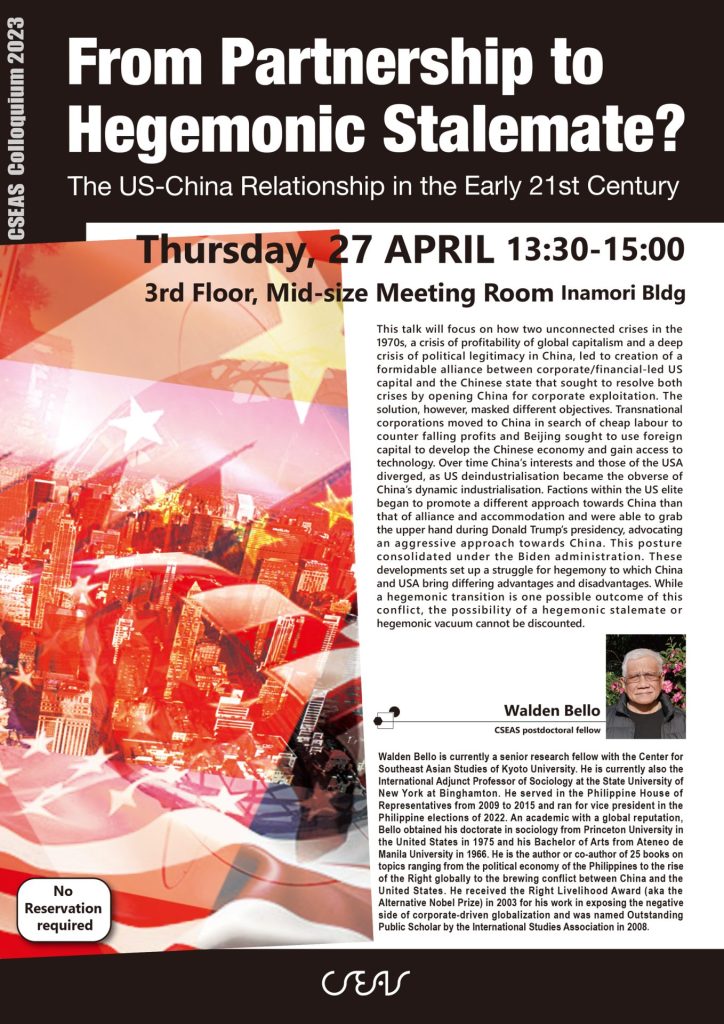Date & Time: Thursday 27 April 13:30-15:00
Venue: Middle-sized Meeting Room (No.332), 3rd Floor, Inamori Foundation Memorial Building
Title: From Partnership to Hegemonic Stalemate? The US-China Relationship in the Early 21st Century
Speaker: Walden Flores Bello (Visiting Research Fellow CSEAS)
This talk will focus on how two unconnected crises in the 1970s, a crisis of profitability of global capitalism and a deep crisis of political legitimacy in China, led to creation of a formidable alliance between corporate/financial-led US capital and the Chinese state that sought to resolve both crises by opening China for corporate exploitation. The solution, however, masked different objectives. Transnational corporations moved to China in search of cheap labour to counter falling profits and Beijing sought to use foreign capital to develop the Chinese economy and gain access to technology. Over time China’s interests and those of the USA diverged, as US deindustrialisation became the obverse of China’s dynamic industrialisation. Factions within the US elite began to promote a different approach towards China than that of alliance and accommodation and were able to grab the upper hand during Donald Trump’s presidency, advocating an aggressive approach towards China. This posture consolidated under the Biden administration. These developments set up a struggle for hegemony to which China and USA bring differing advantages and disadvantages. While a hegemonic transition is one possible outcome of this conflict, the possibility of a hegemonic stalemate or hegemonic vacuum cannot be discounted.
Walden Bello is currently a senior research fellow with the Center for Southeast Asian Studies of Kyoto University. He is currently also the International Adjunct Professor of Sociology at the State University of New York at Binghamton. He served in the Philippine House of Representatives from 2009 to 2015 and ran for vice president in the Philippine elections of 2022. An academic with a global reputation, Bello obtained his doctorate in sociology from Princeton University in the United States in 1975 and his Bachelor of Arts from Ateneo de Manila University in 1966. He is the author or co-author of 25 books on topics ranging from the political economy of the Philippines to the rise of the Right globally to the brewing conflict between China and the United States. He received the Right Livelihood Award (aka the Alternative Nobel Prize) in 2003 for his work in exposing the negative side of corporate-driven globalization and was named Outstanding Public Scholar by the International Studies Association in 2008.

